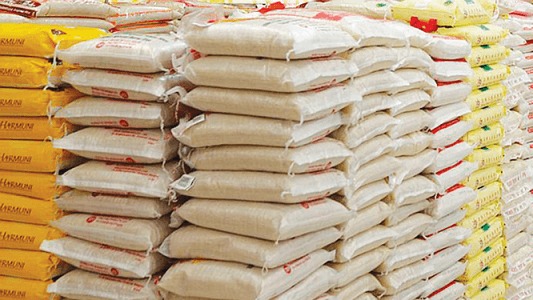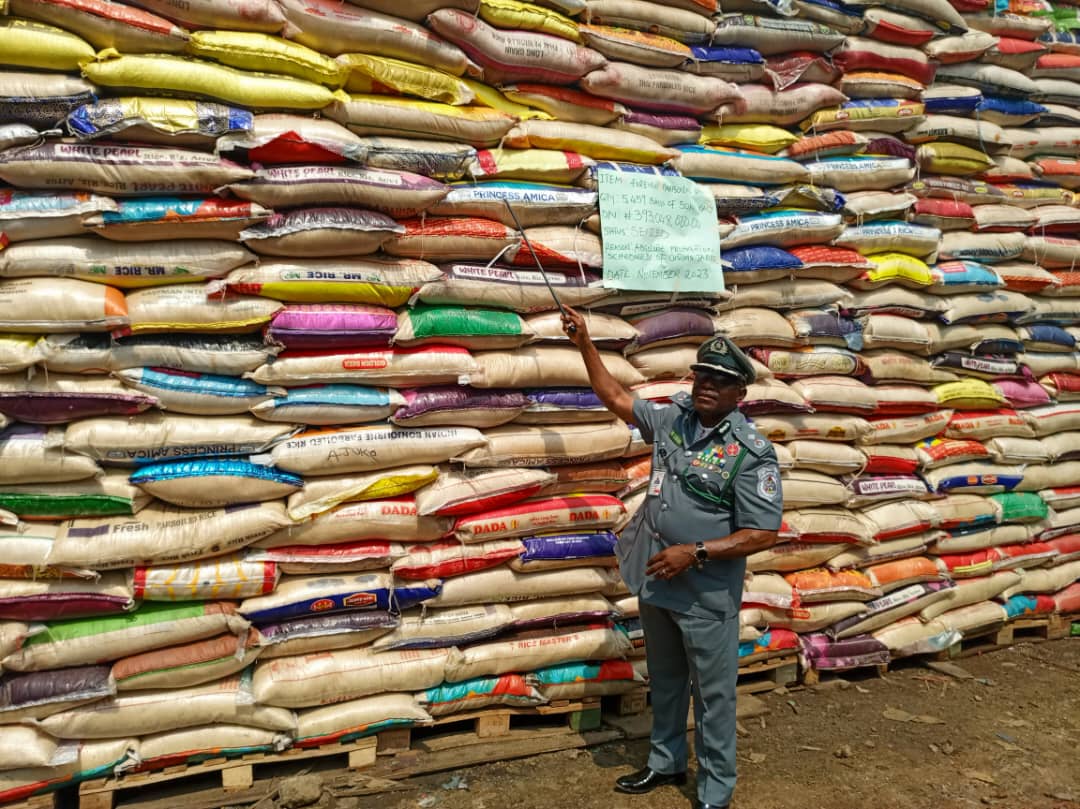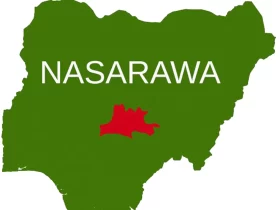
Despite the surge in the price of rice and the recent removal of the ban on foreign exchange for its imports, the Nigeria Customs Service has affirmed that rice remains a regulated commodity.
Rice, a fundamental food item widely consumed in Nigeria, has experienced a significant price increase despite being locally produced. Presently, the commodity is sold at prices ranging from N55,000 to N60,000 for a 50kg bag, depending on the location of purchase.
Approximately a year ago, the price for the same 50-kg bag was around N30,000. However, the cost has continued to rise despite the local production of rice and the recent authorization of forex for rice importation into Nigeria.
On October 12, it was reported that the Central Bank of Nigeria had lifted the ban on 43 items, including rice, for importers seeking access to foreign exchange on its official platform.
Many Nigerians anticipated a reduction in the cost of rice, particularly for imported varieties, following the CBN’s announcement. Contrarily, the price of this essential commodity has persisted in its upward trajectory.
While domestic rice producers attribute the escalating costs to high production expenses, it has been noted that imports of rice remain restricted due to measures imposed by the Nigeria Customs Service.
The Nigeria Customs Service maintains its stance that rice, as a restricted item, will be seized if imported through the country’s land borders.
Emphasizing that the removal of the forex ban on 43 items by the CBN does not exempt rice from its status as a regulated commodity.
“What is the relationship between the removal of forex on restricted items vis-a-vis fiscal policies of the government? They are different things. Rice is a restricted item. So, if it is a restricted item, it remains restricted,” the Nigeria Customs Services pokesperson, Abdullahi Maiwada, told our Saturday Punch.
READ ALSO: Customs FOU Arrests 11 Suspects, Confiscates Nine Trailer Loads of Rice
He continued, “There is a difference between restriction and prohibition. And there is a difference between absolute prohibition and prohibition by trade. Somebody who is in tune with how these import and export processes are done must know what these terminologies are.
“How many tonnes of rice do we produce in Nigeria? Those are the things to find out, not to ask me why the price is going high. Rice is a restricted item, and that is why it is being intercepted.
“If you import rice through the land border, it will be confiscated because it is a restricted item. The way vehicles cannot come in through the land border is also how rice cannot come in through the land border.”
Maiwada maintained that the government’s stringent policy regarding the commodity remained unchanged. He emphasized that any alterations to the policy would be officially communicated to the public through the customs service.
He said, “If there is a change in policy, we will tell you. If today the government says vehicles can come in through the land borders, we have to inform you by telling you that the government has lifted the ban restricting the importation of vehicles through the land borders, and you can then import vehicles.
“Also, some people are talking about frozen poultry products, and these are products under the import prohibition list. Go and check our website, see the import and export prohibition list, you will see that live birds and poultry products are under the prohibition list.”
He clarified that the Nigeria Customs Service (NCS) does not dictate market prices, emphasizing that its role is limited to enforcing fiscal policies.
In October 2023, the Central Bank of Nigeria (CBN) reaffirmed its commitment to enhancing liquidity in the forex market.
In a statement titled ‘CBN restates commitment to boost liquidity in forex market,’ signed by then Director of Corporate Communications, Isa AbdulMumin, the CBN announced that importers of the 43 items previously restricted by the 2015 circular (TED/FEM/FPC/GEN/01/010 and its addendums) could now access foreign exchange in the Nigerian forex market.
The CBN also expressed its dedication to fostering orderliness and professional conduct among participants in the Nigerian forex market.
It emphasized the principle of market forces determining exchange rates through a willing buyer-willing seller approach.
The statement further outlined the CBN’s commitment to expediting efforts to clear the FX backlog with existing participants and engaging in ongoing dialogues with stakeholders to address pertinent issues.
Meanwhile, an undisclosed source within the CBN acknowledged the scarcity of forex, making it challenging to obtain dollars for importing rice.
The source conveyed a stark reality, stating that while it might be fine if one could secure forex for importing through seaports, the practical difficulty lies in obtaining approval for Form-A to import rice.
The source, requesting anonymity due to lack of authorization, asserted that despite the lifting of the ban on forex restrictions for certain items, nothing substantial had changed regarding rice imports. #Customs
(PUNCH)








Leave a Reply